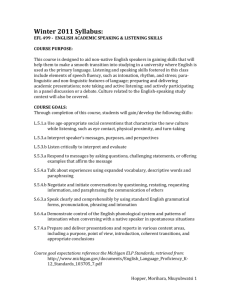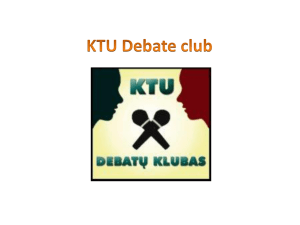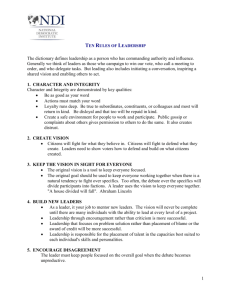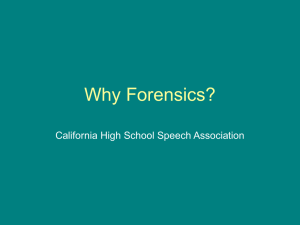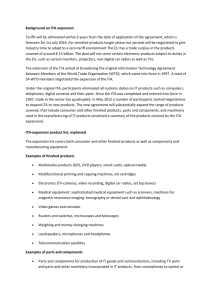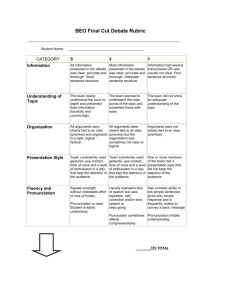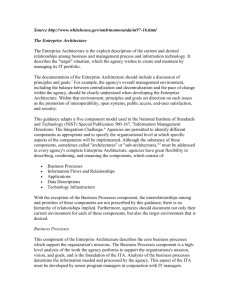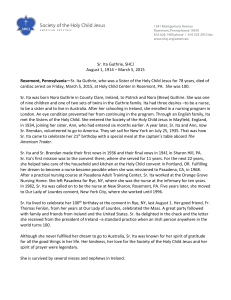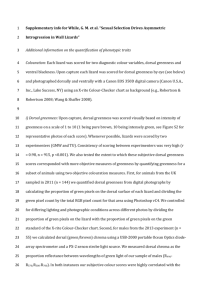final report
advertisement
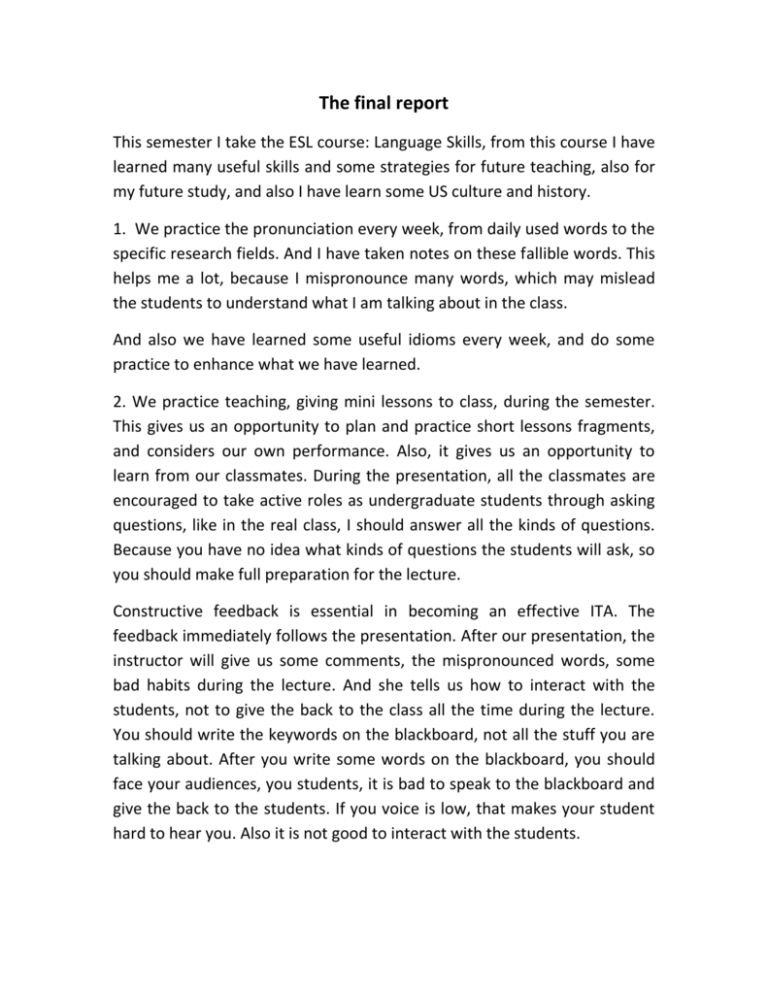
The final report This semester I take the ESL course: Language Skills, from this course I have learned many useful skills and some strategies for future teaching, also for my future study, and also I have learn some US culture and history. 1. We practice the pronunciation every week, from daily used words to the specific research fields. And I have taken notes on these fallible words. This helps me a lot, because I mispronounce many words, which may mislead the students to understand what I am talking about in the class. And also we have learned some useful idioms every week, and do some practice to enhance what we have learned. 2. We practice teaching, giving mini lessons to class, during the semester. This gives us an opportunity to plan and practice short lessons fragments, and considers our own performance. Also, it gives us an opportunity to learn from our classmates. During the presentation, all the classmates are encouraged to take active roles as undergraduate students through asking questions, like in the real class, I should answer all the kinds of questions. Because you have no idea what kinds of questions the students will ask, so you should make full preparation for the lecture. Constructive feedback is essential in becoming an effective ITA. The feedback immediately follows the presentation. After our presentation, the instructor will give us some comments, the mispronounced words, some bad habits during the lecture. And she tells us how to interact with the students, not to give the back to the class all the time during the lecture. You should write the keywords on the blackboard, not all the stuff you are talking about. After you write some words on the blackboard, you should face your audiences, you students, it is bad to speak to the blackboard and give the back to the students. If you voice is low, that makes your student hard to hear you. Also it is not good to interact with the students. And my classmates also give us some useful comments, point out that we use less transitions, visual aids, body language and so on. Also all our microteaching are videotaped. We can watch the video next class, to see how we as an ITA look and sound to our students, how our behavior affects others. During watching the videotape, the instructor will comment it. This time, it is mainly on the style how we give the lecture. Usually, I speak too fast, and not clearly, and write too much on the blackboard. I try my best to control the speed, to slow down when I give lecture. When I slow down, the pronunciation is much better, and more clearly. Sometimes, when I am giving lecture, students are keeping asking question, that’s what we have encountered during the microteaching, I am busy answering the question, and cannot continue. That is another problem. If we have not much time, we cannot answer all the questions, just answer a few, and tell the students that they can come to ask question after class, we have to finish the content. 3. During the semester, we give a presentation on specific topic and give a discussion. For the presentation, we should prepare all the stuff, because we are not familiar with the topic, it is new to us, we have to search all the information about it, and think about how to present it to the class that the students can understand well. This also gives us a chance to learn more about American culture and history. Because every student has different background, may ask some questions that you never think about, so it is a challenging job. And I have learned another strategy, if you do not know the answer; just say you do not know, I will check the answer and tell you next class, it is nothing to be shamed. For the discussion, we have to design some questions to ask the students, and learn how to control a discussion. The most difficult part of the discussion is how to introduce the topic, how to bring the students to your designed way. And during the discussion, you should take notes on the opinions of the students, which maybe you never come up with. From the discussion we learned how to organize a discussion, how to communicate with the students, and know some discussion strategies. 4. And at last we have practice the impromptu speeches and debate. Impromptu speech gives us an opportunity to give an unprepared presentation, and it is an exercise for us, to drive us think quicker, and speak clearly, logically. Usually, you should give specific example to make your speech splendid. For debate, we know what are debate, how to debate, and the rules for debate. Debate is to give a good argument that is to argue the counter point. As an ITA, I have learned some skills how to give a good lecture and know what I am good at, for example, how to communicate with the students, how to interact with students, how to invoke the interests and enthusiasms hidden in students' mind. And also I have correct many mispronounced words, learned some American class culture. In the class you should try your best to be the friend with your students, use some body languages to interact with the students, not look stiff, and often ask the students questions to encourage them to think, for example, you have taught the students how to add a hyperlink to some words, then you can ask them how to put a hyperlink on some picture. And you should encourage them to ask questions, to solve the problems independently. Also during the class, you can give some pop quiz for some extra points that will invoke the interests of the students. And in the class, you should generate a great atmosphere which induced a profound involvement and interactions of students in the class, rather than to make the students nervous. For the goals for further development of my teaching, first, I will still practice my pronunciation, to pronounce clearly. And I will try to implement the strategies I learned from the classroom observation and some courses I took, also I will discuss the strategies with other TAs, communicate with the experience of each other. And another thing is that, when I am presenting, I usually write too much on the board, and give the back to the student, it is not good. I will change my style, and try to speak more to the students, to interact with the students. I want students would like to take my course, they can learn knowledge while they are happy, and you cannot make your course as a burden for your students, if the students feel it is no interesting in these class, they will get bored, and will not active in the class, so you can imagine the atmosphere of such a class. I have been a TA for course CS170: Computer Applications for Business for a year. what the US undergraduate classroom impresses me most is that the atmosphere here is more active, and the students ask all kinds of questions, sometimes you do not know how to answer their questions. And in the classroom, the students have their own characters; they are freer than other countries’ classroom. For example, in the class, the students may put their feet on the desk, or sit cross-legs on the chair. And the students would like to raise their hands to ask you to repeat or do something again. When you present new information in the class, you can ask the students questions to attract their attention. They would like to respond to your questions. And they would like to ask you some question about the coming assignment. In my opinion, US students like to learn something interesting, if the class is boring, they may begin to digress, and would not concentrate on what you are talking about. Sometimes, you want the students to do something new or a little challenging, few of them will do that, most of them would like to wait you to give the answer, but they would like you to come to help them to solve the problem, if you come to ask why you do not want a try, they just pretend to do that, but not in the right way. If you tell them how to do it, you are happy to do that, and begin to ask you why. And another observation is that they like to ask you question in person, not like email, or just make an appointment via email. For my class, I do think the students prepare for the class. Because each class there is always some students ask me some questions about the new material before my presentation. I am happy to see this, because they already know what they should pay attention to. During the class, when I write something on the board, the students always take notes. That’s a good habit. Before exams, the students would like to ask questions about their assignments or if some contents will be tested in the exam. And I think my students always prepare for the exams because they always do what you want they to do, always are obedient. And my sections always get the best grade among all the sections. That is quite similar to the students in our country. The students in our country are quite different from the US students. US students like to ask questions, all kinds of questions, but Chinese students seldom ask questions during the class, they are good listener. Chinese student like to take notes, almost all the students. But not too many US students take notes, at least in my class. All the student of both country are all obedient, they do what the instructor want them do. You can see US student can study everywhere, even just sit on the ground, they seem diligent. In china, students always stay in the library or classroom, you never see a student sit on the ground to study. Suggestions: This course, in my opinion, it is useful for ITA. It gives an opportunity for all ITAs to learn English, to learn some skills for future teaching. But I think maybe something new should be added to this course. 1. This course should give more opportunities to the students to speak, the mini lessons and one presentation are not enough. Maybe some discussions should be added. Then students can have more chances to speak. 2. The students in this course can be divided into several groups, and each week, they can be assigned some topics to talk, and in the class, they can present their discussion results. 3. I like the part talking the current news for each week, so I want to reserve this tradition. 4. Maybe this course needs some interns, some undergraduate students to help the students in this class to improve their pronunciation and lecture skills, because they know how the lecture present they can understand well. At last, I would like to thank Prof. Irene, thank you for your help through this semester. Fengpeng Yuan



